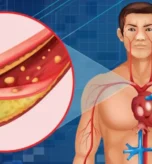
General Medicine does play a significant role in identifying potential health risks before they become major problems. One of the most important contributions is in the detection of early-stage chronic diseases during routine health checkups. Regular visits to a medical practitioner encourage wellness and provide suitable opportunities for timely diagnosis and intervention, thereby drastically improving the patient’s quality of life.
Why Early Detection is Mostly Important in Chronic Diseases
These chronic diseases, such as diabetes, high blood pressure, or heart ailments, usually develop silently and show some symptoms only after irreversible damage has occurred. Thus, it becomes very important to detect them early. These conditions are diagnosed and treated more effectively if they are detected early, with a better prognosis, thanks to the routine screening and evaluation processes under the aegis of General Medicine Services.
When detected early, a few conditions can be managed with lifestyle modifications, treatment, and close observation and require fewer interventions. This way, it would lessen the burden of disease on the healthcare system and prolong the patient’s level of comfort and longevity.
The company needed to complete a complex migration on a tight deadline to avoid millions of dollars in post-contract fees and fines. Lorem ipsum dolor sit amet, consectetur adipiscing elit. Aenean fermentum lacinia felis et dapibus.
Heather Smith – Quote
Role of the General Physician in Regular Health Monitoring

The General Physician is frequently the first point of contact in healthcare-related issues and plays a great role in chronic disease prevention. In assessing your overall health status, determining the risk factors, and then recommending screenings or treatments, these doctors treat the whole person, giving regard to every aspect of one’s well-being. Loaded are the factors that build a long-term relationship between a general practitioner and the patient. These factors assist the GP in keeping track of the patient’s medical history, recognizing patterns, and dispensing tailored advice. A constant review allows for early detection and intervention in any health changes that may occur before any serious conditions develop.
What Happens During the Heart Check-Up?
The heart check-up is an assessment of the general physical and mental health of an individual. It may include:
- Blood pressure and heartbeat monitoring
- Blood checks for sugar, cholesterol, and organ functioning
- Weight and BMI measuring
- Lifestyle issues, behaviors, and mental health
- Screening for hazards relevant to age/gender/family history
Such assessments allow tracking one’s present health status, measuring progress to new interventions.
Prominent Advantages of Preventive General Medicine Services
General Medicine Services ensure that some slight medical problems do not grow into full-blown irregular diseases. In this sense, these services are not for cure alone but focus on prevention. They cover regular health checkups, immunizations, nutritional counseling, and health promotion advice.
Preventive services also assist in promoting health literacy. Patients actually become aware of their bodies and know how to identify the warning signs of a disease at an early stage. This helps individuals to seek help sooner and to make decisions that take responsibility and care of their health.
Long-Term Effects of Chronic Disease Management
Proper diagnosis and follow-up application are a great initiative to prevent chronic issues from arising. Once detected, emergent management will provide symptom alleviation and complication prevention by using drugs, lifestyle adjustments, diet modification, or frequent follow-up visits to your general physician. Chronic Disease Management plays a critical role in ensuring that patients maintain stable health over time through continuous monitoring and individualized care plans.
In essence, with good control, patients can avoid emergencies, reduce the number of visits to the hospital, and remain productive with their daily lives. The practice of general medicine is aimed at establishing and encouraging sustainable, long-term strategy designs into daily life.
How Should Health Checkup Frequency Be Determined?
For the majority of adults, health screening on a yearly basis is fine unless advised otherwise by the physician. However, those with existing risk factors are more likely to get an evaluation frequently, such as a family history of some chronic illness, obesity, or simply smoking.
Your general physician will advise you on that matter when taking into consideration your health profile. Do not wait for symptoms to start displaying; by then, the disease might have already progressed into an advanced state.
Encouragement of a Proactive Health Culture
Embedding regular health assessments into the very fabric of life is a wellness culture opportunity. Encouraging other members of the family and friends to also participate in health screening can make an enormous contribution to preventing hereditary chronic conditions. An early diagnosis is what makes the disease easier to cure or manage. Since General Medicine allows regular checkups, one is given the chance to be aware and prepared instead of being reactionary and unprepared.
Conclusion
Medical checkups are installations of consciousness for better health. Through General Medicine eyes, routine evaluations throw a glare on the state of health and grade opportunities for catching chronic diseases before they advance.
Making full use of General Medicine Services, working hand-in-hand with a General Physician, and standing firmly in preventive care will help people live longer, healthier, and more independent lives. The early detection of chronic illness is the best weapon, and it begins with a simple health checkup.







